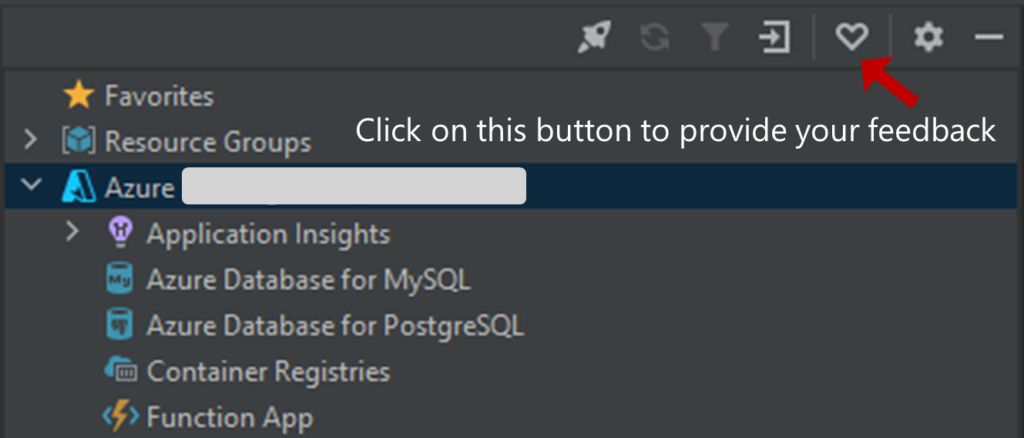Hi everyone, welcome to the October update of Java on Azure developer tools. In this update, we will introduce our Managed Identity Support for Azure Functions in Azure Toolkit for IntelliJ IDEA. Additionally, we are launching a new series called Java on Azure Tooling Guide, and in our first post, we will discuss using App Service with the Azure Toolkit. We hope you enjoy these updates and have a smooth experience with our Azure toolkit. We hope you enjoy these updates and have a smooth experience with our Azure toolkit. Please download and install the Azure Toolkit for IntelliJ. Let’s get started.
Azure Toolkit for IntelliJ Improvements
Managed Identity Support for Azure Functions
In August’s update, we have introduced our support for Azure App Service, which will help developers simplifies the management of credentials for applications and reduce the risk of credential exposure.
In the latest release, we have also added Managed Identity support for Azure Functions in our toolkit. This feature offers developers the flexibility to use managed identities for authenticating and accessing Azure resources, such as Azure Storage, without the need to manage credentials directly. When deploying your Java applications to Azure Functions app in our toolkit, you will be prompted to assign roles to access Azure resources. Here is a short demo of it.
Java on Azure Tooling Guide
Welcome to our new series, Java on Azure Tooling Guide, which is dedicated to helping Java developers leverage Azure services we supported using the Azure Toolkit for IntelliJ. In this series, we’ll explore how to efficiently manage Azure resources, connect your applications to other Azure services, and monitor and troubleshoot your deployments—all from within IntelliJ.
Using Azure App Service with Azure Toolkit for IntelliJ
Azure App Service provides a fully managed platform that simplifies the deployment, scaling, and management of Java applications. It supports various Java frameworks and application servers, such as Tomcat, JBoss EAP, and Spring Boot. To begin with, let’s focus on using Azure App Service within the Azure Toolkit for IntelliJ.
- Creating an Azure App Service Instance from IntelliJ
The Azure Explorer in IntelliJ provides a convenient way to manage your Azure resources directly from your development environment. To access it, open IntelliJ and navigate to the Azure tab on the left sidebar.
Here, you can sign in to your Azure account and view all your Azure resources under subscriptions. Right-click on the Web Apps node in the Azure Explorer and select “+Create” to continue. In the creation dialog, you will be prompted to specify the name and platform for your Web App.
- Managing Azure App Service Resources from IntelliJ
Once you have signed in, you can manage your App Service instances by right-clicking on the desired instance in the Azure Explorer. This allows you to start, stop, restart, and delete instances.
You can also view detailed information about each instance, such as its status, URL, and configuration settings.
- Connecting Azure App Service to Other Azure Resources
Azure App Service can connect to various Azure resources such as Azure SQL Database, Azure Storage, and more. These resources provide essential services like data storage, database management, and additional functionalities that enhance your application’s capabilities.
To connect your Java web application to Azure resources, you need to configure the connection strings and settings. For example, to connect to an Azure Storage Account, you can add the connection string to your application’s configuration file. The Azure Toolkit for IntelliJ simplifies this process by providing Azure Resource Connector to set up these connections. Here is another demo for you to get started.
Don’t miss our next blog post, where we’ll continually dive into using App Service with the Azure Toolkit, including how to monitor Java applications on App Service. Stay tuned!
Feedback and Suggestions
Please don’t hesitate to try our product! Your feedback and suggestions are very important to us and will help shape our product in the future.
- Leave your comment on this blog post
- Create a feature request or submit a bug on our official GitHub Issues page
- Fill in our survey
Resources
Here is a list of links that are helpful to learn Java on Azure Tooling.
- Azure Toolkit for IntelliJ documentation
- Azure Toolkit for Eclipse documentation
- Maven Plugin for Azure Web Apps/Functions/Spring Apps
- Gradle Plugin for Azure Web Apps/Functions
- VS Code extension for Azure Spring Apps


0 comments